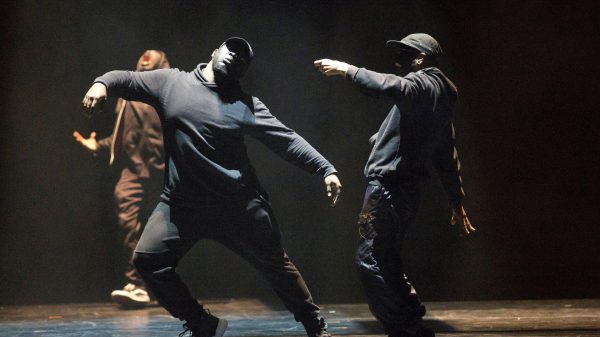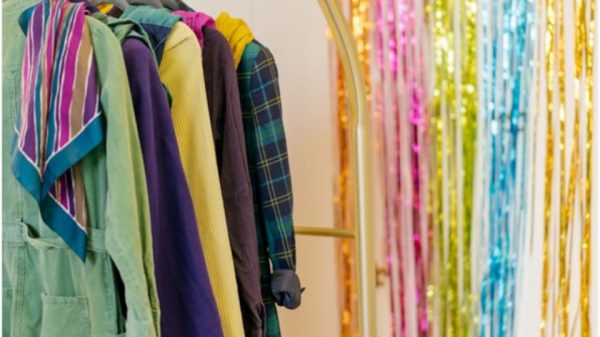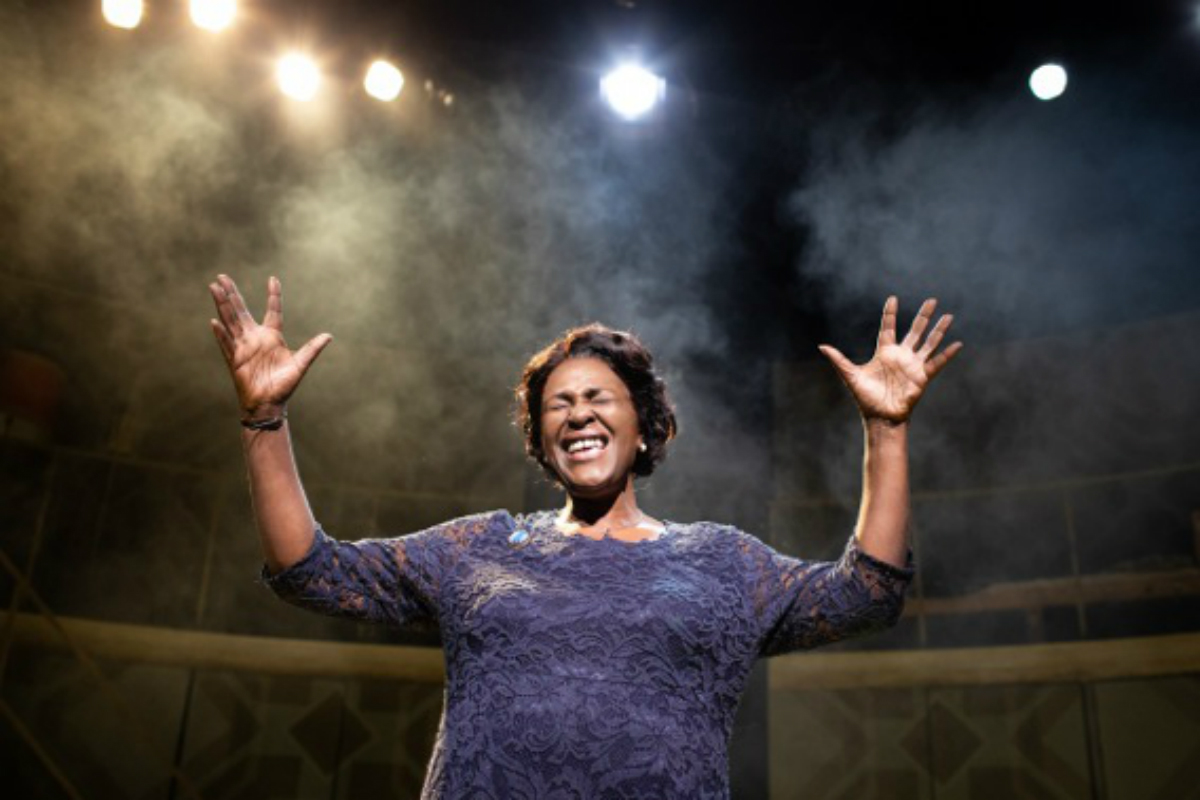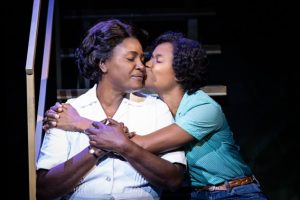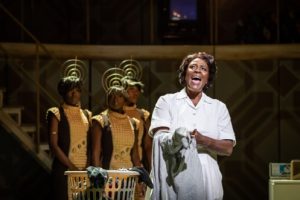The theatre and TV veteran on musical Caroline, Or Change, and the state of the acting industry for Black performers
Despite theatre becoming increasingly more diverse as the years go on, even in 2019, it’s somewhat rare to name a Black veteran of the West End stage. However, with a career spanning over 30 years, Sharon D. Clarke has more than earned this level of reverence.
Since the 1980s, she’s conquered a range of roles from panto, to Broadway showstoppers (Mama Morton in Chicago), to seminal American plays on the ‘black experience’ (August Wilson’s Ma Rainey’s Black Bottom) Clarke has been a staple in the British theatre circuit.
For non-theatre goers, you’ll also know her from screen projects; Holby City as Lola Griffin until 2008, Doctor Who, and most recently tense crime thriller, Informer. Her work is expansive, varied, and always makes for a performance that makes the audience sit up and take notice.
Since November 2018, Clarke has been in the West End production of Caroline, or Change, in the titular role of Caroline Thibodeaux. Having first opened in Chichester in 2017, Tony Kushner & Jeanine Tesori’s experimental, musical play is certainly unique, and more than deserving of its high praise.
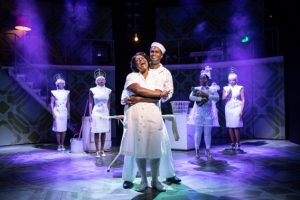
Sharon D. Clarke on the British TV industry: ‘If I was sitting around in Britain, waiting for a series to come, I’d’ve been a good 40 odd years waiting!’ (Image: Helen Maybanks)
Caroline, as a maid for a middle-class Jewish family in Louisiana, spends the majority of her days doing their laundry in the unbearably hot basement. For Caroline, it’s a hellish reality that she wishes she didn’t have to endure. However, as a single mother of four children, she doesn’t have the privilege of quitting; she has to make the best of what she has. But with the Civil Rights Movement starting to gain traction, and a Confederate statue in town being mysteriously vandalised, the air of change is around, and Caroline is, understandably, resistant – what good has ‘change’ brought her so far? Whether Caroline likes it or not, the world is about to go through a shift. The question is: what happens to Caroline?
In person, Sharon D. Clarke is as warm as you might imagine. Though born in London, she lilts into Patois at a number of points in our conversation, in honour of being brought up by two parents from Clarendon, Jamaica. She speaks about the importance of telling a story such as Caroline’s, and why she’s stuck closely to working in the UK…
Congratulations on Caroline, Or Change – it’s an amazing show! Caroline is such a heartbreaking character, carrying the weight of a lifetime of disappointments with every step; what is that like to play?
Sharon D. Clarke: In a weird way, it’s joyous. As a performer, getting to run that whole gamut of emotion doesn’t often happen, especially since most musicals are more ‘jazz-hands, happy clappy’; you don’t get this range of emotion to play. Caroline is so tightly wound, and can see no way out. For her daughter, there is hope. But Caroline comes from a generation where she’s used to seeing lynchings; where ‘you upset the white man, yuh cyan dead!’ She’s a single mother, she has a son at war in Vietnam; then there’s worrying about money. She has $30 each week, to send a little cookie package to Vietnam, or feed and clothe the children at home, take one to the dentist, get one new glasses… One week, gi’ dem meat twice, now the rent is overdue. Her life is a constant struggle. For her, the way out is for her kids. She’s thinking: ‘This is my lot, it’s not getting better for me. I just have to plod on and make sure my kids are gonna be alright.’
As a child of the Windrush Generation, did you find that your parents were like Caroline: hesitant to disrupt the status quo to not risk trouble for the children?
SDC: No; my parents were very forward thinking, quite rebellious people. The fact that my mum and dad, who grew up next to each other in Clarendon, for them to have left and pick up themselves, and come here to give me a better chance at life. Had I been born in Jamaica, I’d still be me, I hope, but not with the opportunities and resources to do what I do. Had my parents not left their home, and come here, I wouldn’t have the career I do. That is the greatest gift they gave me; it completely and utterly enables me to be who I am at the best that I can be, at what I’m doing, at the level I’m doing it.
So, they always encouraged you to go after everything.
SDC: Everything. My mum was a phenomenal seamstress, but she used to sing. She won cups and all kinds of stuff; my dad used to talk about listening to her practice when they were in the valley in Jamaica, and you could hear her voice ringing through – so they were supportive of what I wanted to do, but they told me to have an education behind me, because this business can be precarious. Other than that, there was never any push back. My parents never missed one show: from when I was six, until my dad passed in ‘95, and my mum in 2016, they saw absolutely everything.
You’ve spent the majority of your career in the UK – yet you often hear about Black British talent going to the States. What has kept you here?
SDC: I think there’s a difference in that I’m not someone who’s aspiring to be a film actor. If people decide that they want to move away from theatre and do more film, they have to go to the States. I don’t think any film actor will survive over here, unless you’re a big, big, big name. I’ve been privileged enough to just finish doing lnformer, but that’s one of the first series I’ve done. If I was sitting around in Britain, waiting for a series to come, I’d’ve been a good 40 odd years waiting! I am crossing over and doing telly, a bit of film, a series, but my career has been mostly theatre. And for theatre, I can quite happily stay here and remain a presence that says: ‘Yes, I am a Black performer, and I’m here, and you will see me. I’m not going to disappear across the pond, so that you can forget; no. We are here, and there is a generation of us that continue to be here. You’re not gonna forget us.’
What’s it like, telling this story in 2019?
SDC: The way the world is at the moment… Lord have His mercy. This story was written in 2003, about 1963, and here we are today and it’s as relevant as it ever was. When we opened the show in Chichester in 2017, it was the week that they were taking down the Confederate statues in the States: Charlottesville, and the neo Nazi rally. And that story can equate to ourselves as British people, going through the Windrush madness. The fact that generations of families can put into a society, to be told ‘actually, you don’t mean “Jill”’… There are so many levels where we can hold up a mirror to society by telling our stories. Telling this story, about this time, is something I’m very proud to be a part of.
Caroline, or Change is at London’s Playhouse Theatre, booking now until 6th April 2019.







